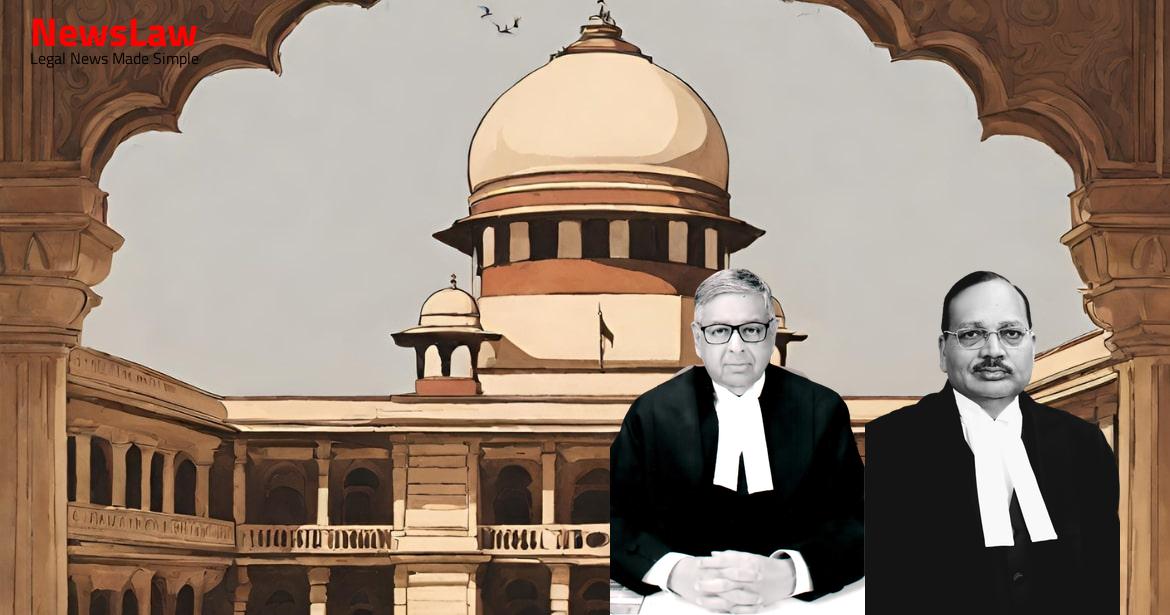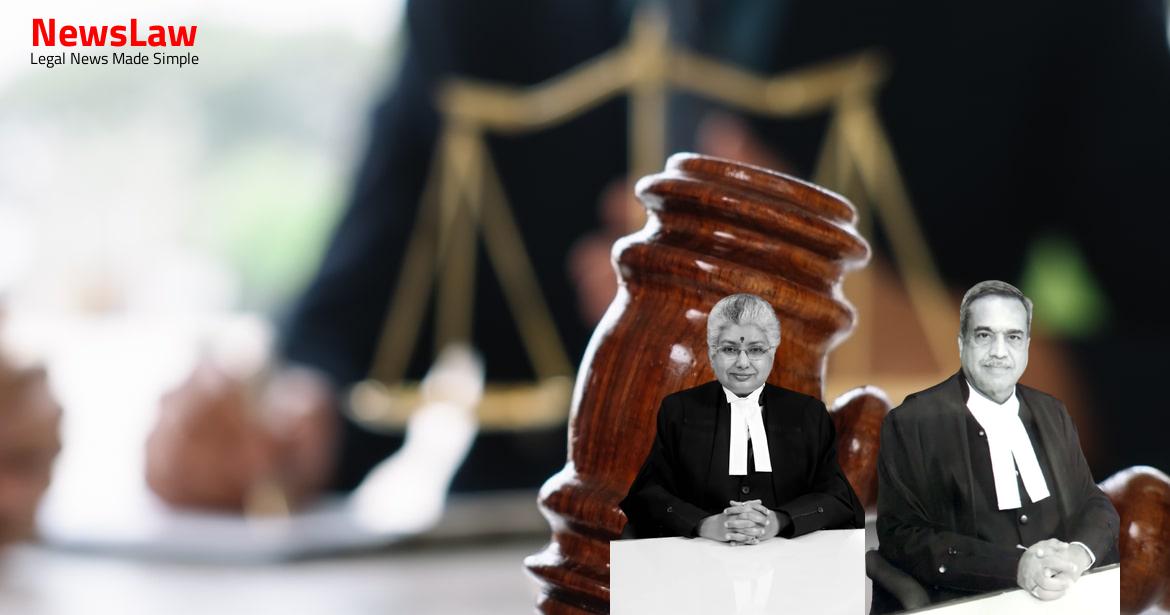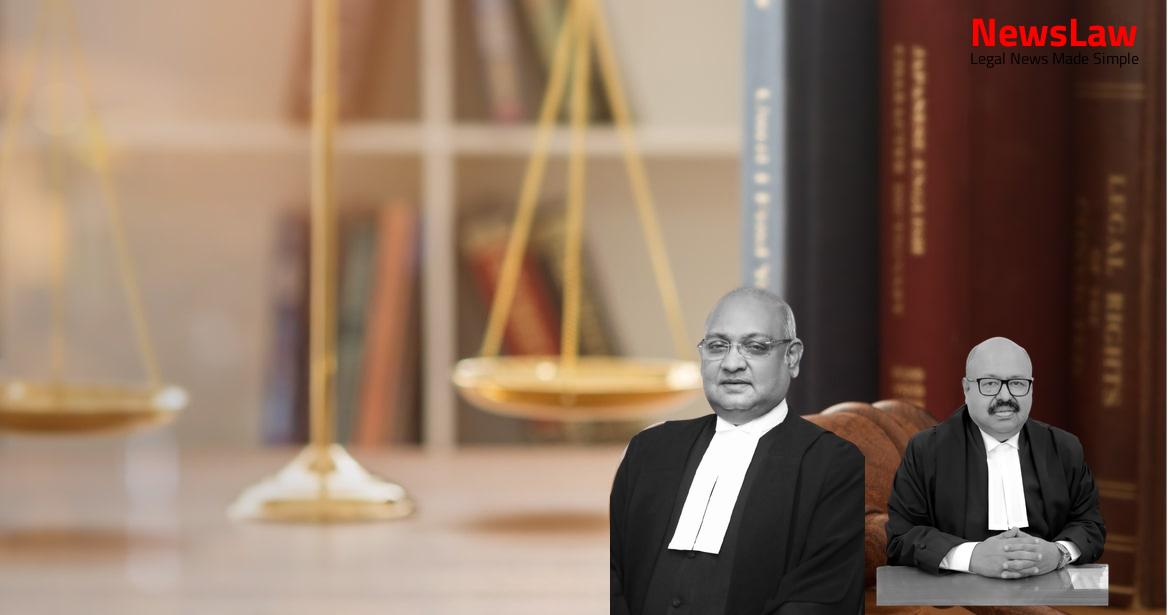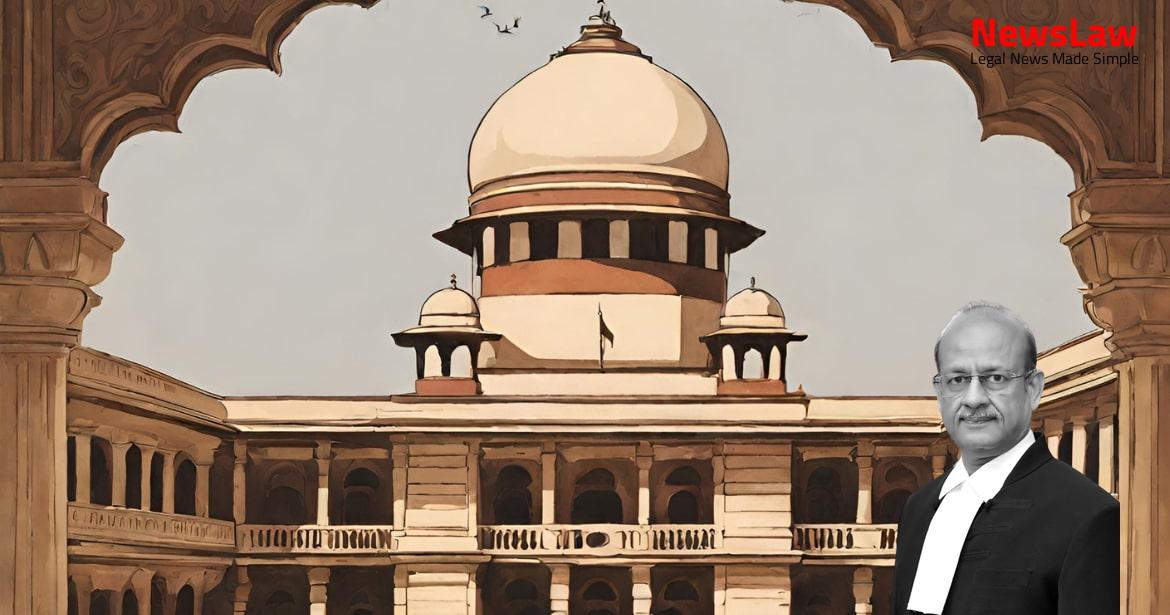Dive into the legal intricacies of rebuttable presumptions in cheque dishonor cases as analyzed by the court. Discover the court’s interpretation of Section 118 and Section 139 of the Negotiable Instruments Act in this insightful post.
Facts
- Appellant No.2 was initially acquitted by the trial Court due to lack of legally enforceable liability on the date of issue of the cheque.
- Appellant No.2 was later convicted under Section 138 of the Negotiable Instruments Act by the High Court.
- Appellant No.2 sentenced to three months simple imprisonment and a fine of Rs. 5,000/-.
- Appellant No.1 also directed to pay a fine of Rs. 5,000/- with a further one-month simple imprisonment for Appellant No. 2 in case of default.
- Respondent lodged a complaint under section 138 and 142 of the NIA against the appellants for dishonoring a cheque.
- Appellants claimed that blank cheques and signed stamp papers were issued to aid in debt recovery, not due to debt.
- Appellants initially denied liability but later deposited Rs. 11.20 lakhs with the Registry of the Court.
- Deed of Undertaking dated 07.11.2000 showed Appellant No.2 acknowledging the liability towards the respondent.
- Cheque issued by Appellant No.2 was presented to the bank but returned due to insufficient funds in the account.
- DW-1, Assistant Manager at State Bank of India, testified on the respondent’s inability to repay credit and debt recovery proceedings against him.
Also Read: Analysis of Suppression of Information in Employment Selection: Legal Perspective
Arguments
- The trial court’s approach was in direct contradiction with established legal position, constituting a patent error of law
- Presumptions under Section 118 and Section 139 are rebuttable in nature as per legal precedents like MS Narayana Menon v. State of Kerela and Basalingappa
- A probable defense meeting the standard of ‘preponderance of probability’ must be raised, mere possibility would not suffice as per Kumar Exports case
- The trial court erred by not presuming the cheque issuance for a legally enforceable debt when the accused admitted signatures on the cheque and Deed
- The High Court was justified in reversing the acquittal as the trial court’s view was considered a possible view, falling within its jurisdiction
- The appellants’ defense was not considered by the High Court, leading to prejudice, citing Reena Hazarika v. State of Assam
- Presumptions under Section 118 and Section 139 can be rebutted by ‘preponderance of probability’ standard as argued based on Basalingappa and Kumar Exports cases
- Learned Counsel for the respondent argued that the High Court’s decision was well reasoned and considered all relevant factors.
- Pointed out the financial loss suffered by the respondent and the adverse impact on his business.
- Emphasized on the undisputed signatures on the cheque and the Deed of Undertaking dated 07.11.2000.
- Asserted that the appellants have admitted their liability of Rs.11.20 lakhs.
Also Read: Analysis of Cheating and Forgery in Passport Case
Analysis
- The trial Court overlooked the provisions of Section 118 and Section 139 of NIA.
- The statutory presumption is drawn once the accused’s signature on the cheque/negotiable instrument is established.
- The burden shifts to the accused to discharge the presumption imposed.
- The evidence presented does not disprove the appellants’ liability.
- Mere denial regarding the genuineness of the Deed of Undertaking does not cast doubt on the document.
- Statutory presumption still applies even if only blank cheque and signed blank stamp papers were given.
- The defence raised by appellants does not meet the standard of ‘preponderance of probability’.
- High Court did not err in upholding the onus imposed on the appellants.
- High Court may interfere if there was a grave miscarriage of justice or perverse finding of fact.
- Powers of the High Court under Section 378 of CrPC were not improperly exercised.
- No valid ground found to interfere with the impugned judgment.
- This Court has set limitations on the exercise of powers under Article 136 of the Constitution in various cases.
- When entertaining an appeal by way of special leave, the evidence on record is not re-appreciated unless there is a manifest error of law or procedure or a perverse conclusion.
- Re-appreciating evidence is not warranted unless the decision under challenge is found to have committed a manifest error of law or procedure or the conclusion reached is ex-facie perverse.
- The legal principle on re-appreciating evidence has been clarified in the case of Rohitbhai Jivanlal Patel v. State of Gujarat.
- The trial court in a specific case drew a presumption under Section 139 of the NI Act but questioned the lack of evidence on the source of funds for advancing a loan to the accused and the absence of examination of relevant witnesses who allegedly provided the money to the complainant for advancing it to the accused.
- Respondent cannot seek compensation as he did not ask for it before the High Court or challenge the High Court’s judgment
- Respondent accepted the High Court’s verdict, implying his claim for compensation is overturned
- Respondent is entitled to receive the cheque amount of Rs.11.20 lakhs deposited with the Registry of this Court
- Court inclined to take a lenient view due to appellant’s voluntary deposit of the cheque amount with the Registry in 2018
- Courts should uniformly levy fine up to twice the cheque amount along with 9% per annum simple interest unless special circumstances exist
Also Read: Discrepancy in Date of Birth: Court’s Legal Analysis
Decision
- The impugned judgment of the High Court dated 09-11-2017 is modified.
- Appellant No.2 is directed not to undergo the awarded sentence.
- The present appeal is ordered to be dismissed.
- The registry of this Court is directed to transfer the amount of Rs.11.20 lakhs along with interest accrued thereupon to the respondent within two weeks.
- Appellant No.2 would ordinarily be liable to undergo the sentence of simple imprisonment as awarded by the High Court.
Case Title: M/S KALAMANI TEX Vs. P. BALASUBRAMANIAN (2021 INSC 72)
Case Number: Crl.A. No.-000123-000123 / 2021



